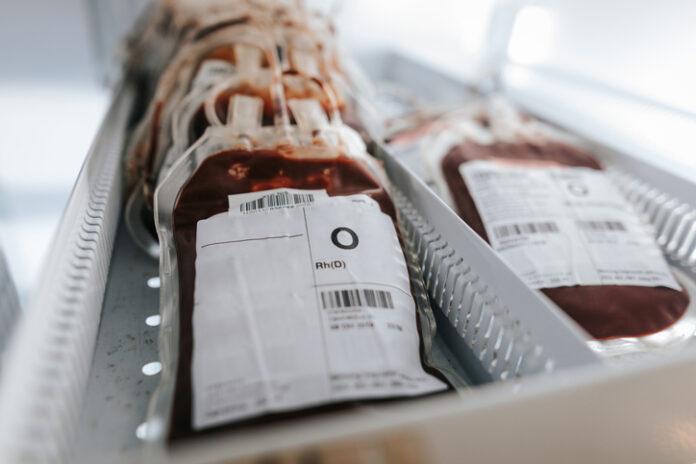
The human gut bacteria Akkermansia muciniphila produces enzymes that are able to remove ABO blood group related antigens on the surface of red blood cells, which could help provide blood for those who need it in the absence of suitable donors.
In a paper published in Nature Microbiology, the researchers report that although this research is at an early stage, they believe they have been able to remove some additional antigens from A and B type red blood cells using this method that earlier attempts were not able to achieve.
If this method succeeds in clinical testing, it could help people with the O blood group who are unable to receive A, B or AB group blood due to the reactive antigens on the surface of red blood cells of these types causing rejection in normal circumstances.
“The enzymatic conversion of group A and/or B red blood cells to the ABO-universal group O (ECO blood) was pioneered in 1982 using coffee bean α-galactosidase to convert B antigens to H….Moreover, mining of a genomic human gut microbiota library identified a sequential deacetylase/α-galactosaminidase system for A antigen conversion in 2019,” wrote the team from Lund University in Sweden and the Technical University of Denmark.
“Despite successful group B-derived ECO blood transfusion in early clinical trials, safety concerns were raised as a result of incompatibility issues, which were observed as unexplained positive crossmatches with recipient plasmas, despite near-complete conversion of canonical A and B antigens.”
The relevance of these additional A and B antigens on some blood cells for blood transfusions has remained unclear and methods to safely remove them using enzymatic or similar approaches are not currently available.
The non-harmful gut bacteria A. muciniphila specifically degrades mucins and mucin O-glycans such as those found on red blood cells. In this study, co-lead author Maher Abou Hachem, a professor at the Technical University of Denmark, and colleagues assessed the ability of 23 enzymes derived from A. muciniphila to transform a range of A and B red blood antigens and essentially make donor blood into O type blood.
Compatibility with blood group O plasma in the lab using this method was much higher than with previous conversion methods, according to the researchers. They were able to find an enzyme combination that effectively transformed the known A and B antigens and their extended types, particularly B antigens that have previously proven difficult to tackle.
“Our work identified high-efficiency enzymes for conversion of all four described extensions of group A and B antigens besides canonical A and B antigens, resulting in enzyme blends for one-pot conversion of group A and B core antigens. This provided compelling evidence for the antigenicity of the extended A and B antigens, thereby offering a missing link towards production of ABO-universal blood for transfusion and potentially organs for transplantation,” concluded Abou Hachem and team.
“This work offers insight into the extended A and B antigens as determinants of transfusion compatibility for the A and B red blood cell phenotypes and highlights mucin-degrading specialists of the gut microbiota as an important reservoir for discovery of glycoconjugate converting enzymes.”













